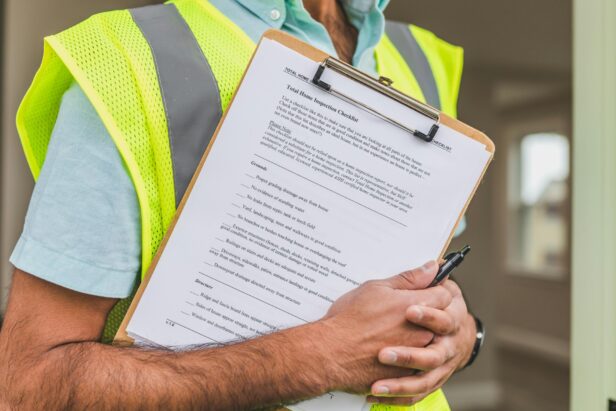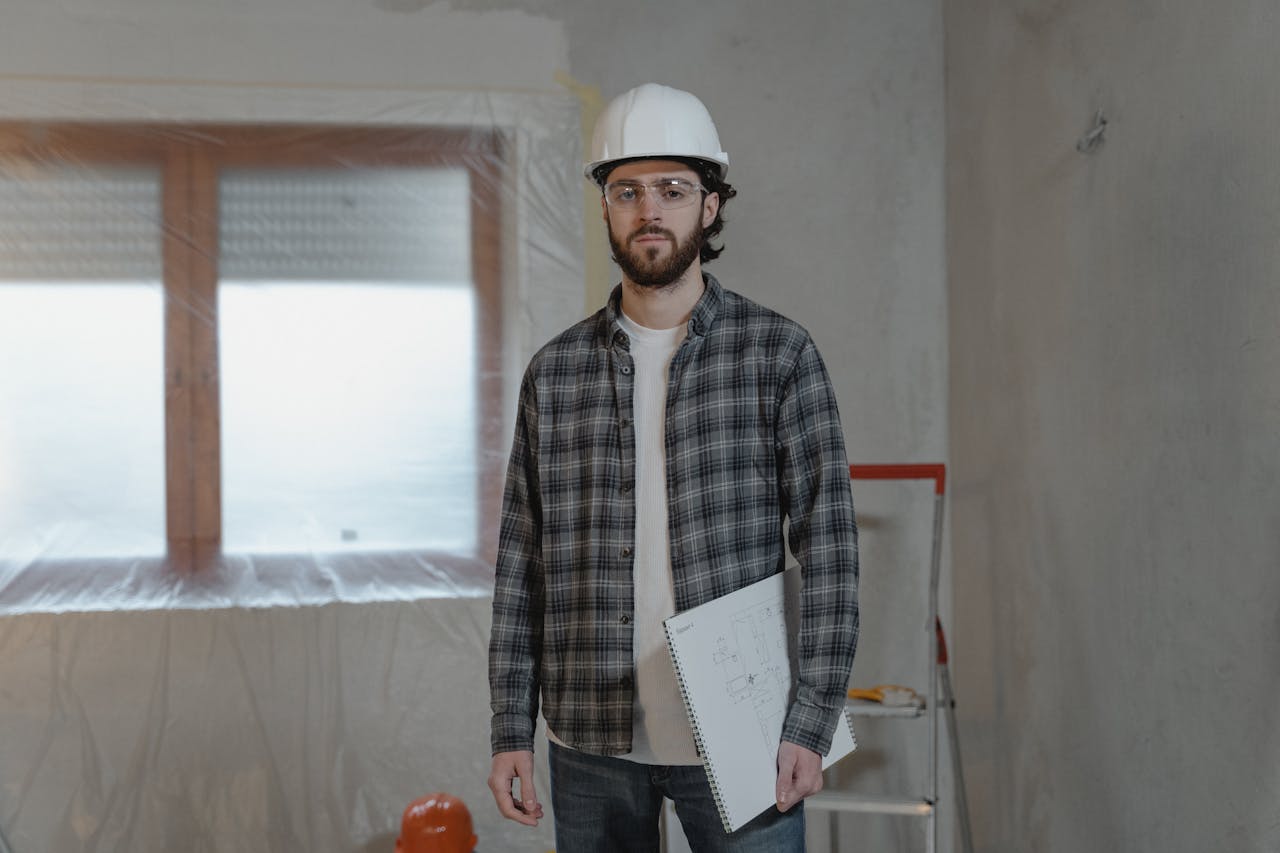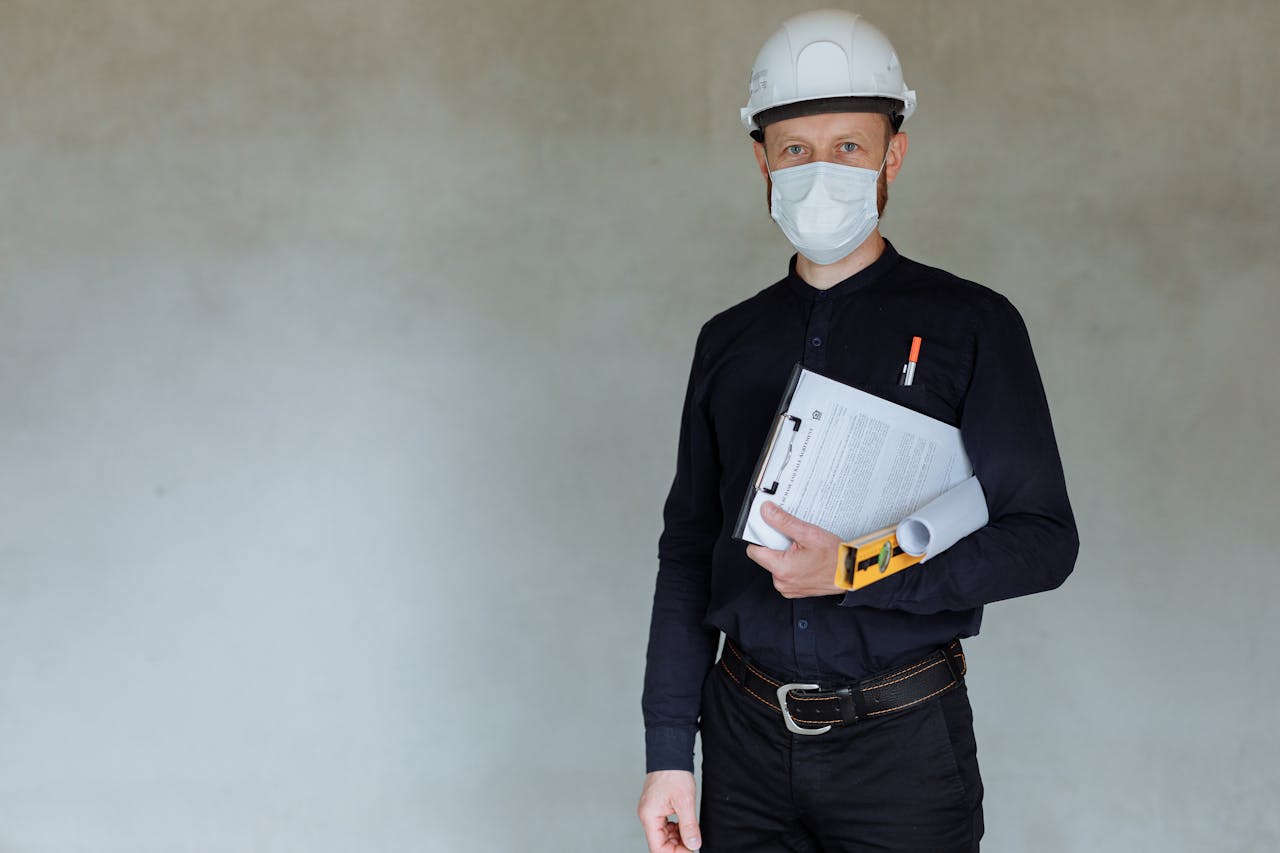Starting a new construction project in Dallas offers both opportunities and responsibilities. As a general contractor, we recognize that understanding the regulatory framework is just as important as the physical building process. The journey from concept to completion in Dallas follows a structured path that property owners and developers need to grasp before construction begins.
Construction in Dallas operates under specific municipal guidelines that differ from those in neighboring cities like Fort Worth or Austin. Recent changes to the Dallas Building Inspection Department’s procedures have streamlined some aspects of the permitting process, but the fundamentals remain consistent. Property owners who partner with experienced contractors benefit from our established relationships with city officials and expertise in local regulations.
The construction process in Dallas involves several crucial phases that we carefully coordinate, from securing the necessary documentation to completing final inspections. For developers and property owners, understanding this roadmap not only helps avoid costly delays but also ensures compliance with all regulations. Let’s explore the essential steps that form the backbone of successful construction projects in the Dallas market.
How Do You Obtain Building Permits in Dallas?
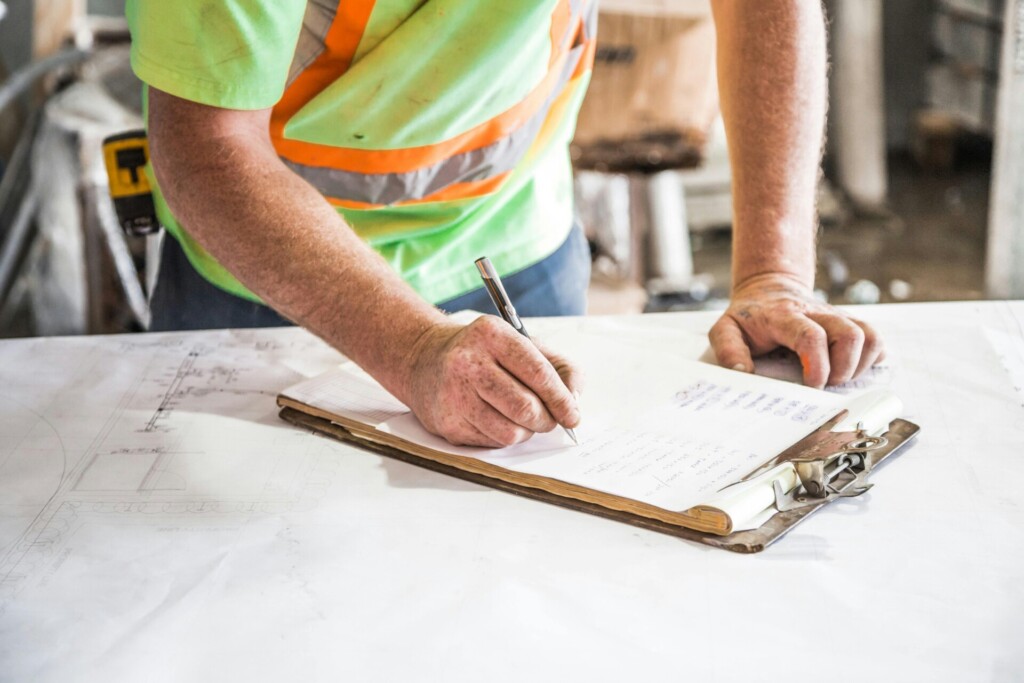
Understanding the Application Process
Managing construction projects in Dallas involves a three-phase permit acquisition process that begins well before construction starts. The city’s permitting structure demands careful planning and rigorous documentation to ensure smooth progress, avoiding costly delays or compliance issues.
Our approach divides the Dallas permit process into three essential stages: application preparation and submission, plan review by city officials, and on-site inspections throughout the construction timeline. Each stage requires distinct resources and strategic preparation to navigate effectively.
Application Preparation and Submission Options
Developers and property owners in Dallas have two pathways for submitting building permit applications. We can submit documentation through the online portal managed by the Dallas Development Services Department, which offers tracking capabilities and confirms receipt digitally. Alternatively, permits can be filed in person at the Oak Cliff Municipal Center, where staff are available to address immediate questions about application requirements.
The May 2024 regulatory update has changed the approach for commercial projects. Now, all commercial applications must be submitted through the city’s online system, reflecting Dallas’s transition toward fully digital processing. This shift has streamlined review times for many of our commercial clients but necessitates more precise digital documentation.
Essential Documentation Requirements
Successful permit applications depend on comprehensive documentation. At a minimum, we submit two complete sets of construction plans detailing every aspect of the proposed work. These drawings must adhere to current Dallas building codes and zoning regulations, including precise measurements and structural calculations where applicable.
For projects involving structural modifications, Texas state law often requires plans to bear the seal of a licensed professional engineer or architect. Our preconstruction team collaborates with these specialists to ensure all technical requirements are met before submission, preventing rejection due to inadequate documentation.
Plan Review Process
Upon submitting a complete application package, the project enters the plan review phase. City reviewers examine every aspect of the proposed construction in light of applicable building codes, zoning ordinances, and safety regulations. This technical evaluation generally involves multiple city departments, depending on the project’s scope and complexity.
Review timelines vary based on the project type. Currently, residential permit reviews take approximately 1-3 business days, commercial remodels around 12 business days, and new commercial construction 20+ business days. For time-sensitive projects, we often utilize Dallas’s Q-Team expedited review service, which accelerates the process for an additional fee.
Inspection Phase
The final step of the permitting process involves multiple site inspections throughout construction. As the general contractor, we coordinate these inspections at specific construction milestones, scheduling them through the city’s online system or by calling the automated inspection line at 214-670-5313.
Our construction supervisors thoroughly prepare for each inspection, ensuring work meets or exceeds code requirements. Passing these inspections at each phase allows the project to proceed without work stoppages, keeping the construction timeline on track and controlling costs for our clients.
What Does the Plan Review Process Involve?
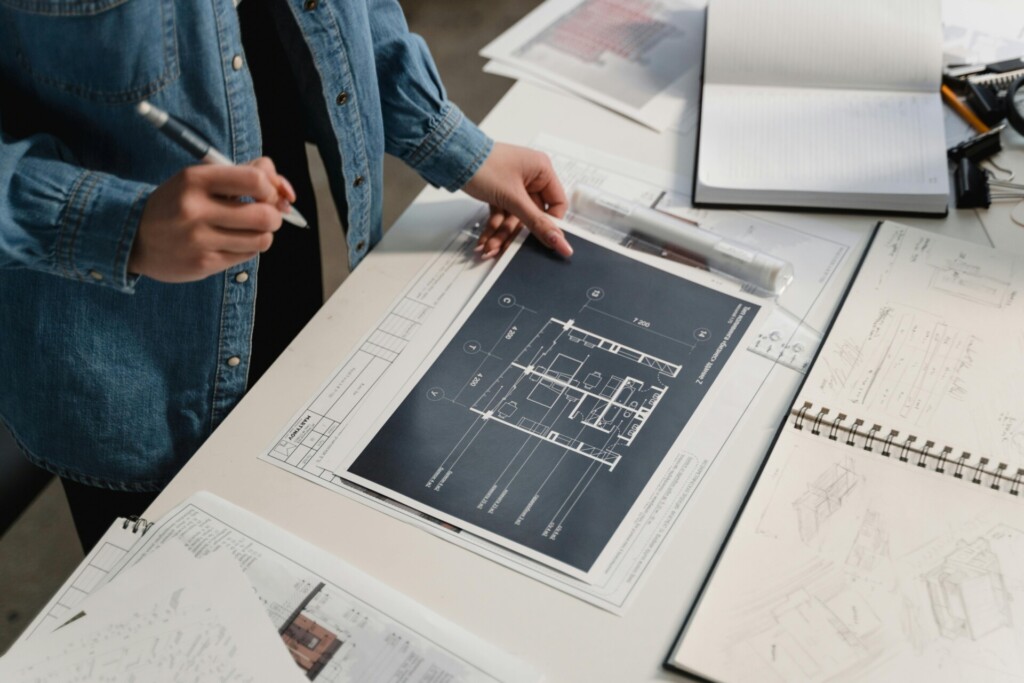
When we submit permit applications for our clients, the project immediately enters Dallas’ plan review phase. This critical step ensures construction plans comply with all local building codes and zoning requirements before our crews can begin work. The thoroughness of this review directly impacts project timelines, so we integrate it carefully into our construction scheduling.
The review process typically involves multiple city departments examining different aspects of your project. For commercial developments, we regularly coordinate with structural, mechanical, electrical, plumbing, and fire safety reviewers who all need to approve before permits are issued. Our team maintains active communication with reviewers throughout this process to address any questions that arise.
Timeline Expectations for Different Project Types
Based on our regular interaction with Dallas’ Development Services Department, we’ve found that review timelines vary significantly by project type. For standard residential projects, first reviews generally complete within 1-3 business days. Commercial remodeling projects typically require about 12 business days for initial review, while new commercial construction reviews often extend beyond 20 business days.
We build these timeframes into our project management systems, but we also prepare for potential requests for revisions. When reviewers identify code compliance issues, we quickly address them to avoid extending the timeline. The city’s current review volume can also affect these estimates, something we monitor closely for our clients.
Expedited Review Options
For time-sensitive projects, we frequently utilize Dallas’ Q-Team expedited plan review process. This service requires additional fees but can significantly reduce review timelines. The Q-Team conducts reviews in an in-person setting with our construction team and city reviewers working collaboratively, sometimes resulting in same-day permit issuance.
The application fees range from $250 for smaller projects under 25,000 square feet to $750 for larger developments exceeding 50,000 square feet. There’s also an hourly review fee of $1,000. While this represents a significant investment, we find the expedited process invaluable for projects with tight construction schedules or when market conditions demand rapid deployment.
Throughout the review process, our permitting specialists maintain detailed documentation of all communications with reviewers. This systematic approach helps us identify and resolve potential issues before they cause delays. We’ve found that proactive management of the plan review process is one of the most effective ways to keep construction projects moving forward efficiently.
What Types of Inspections Are Required During Construction?
As general contractors managing commercial construction projects throughout Dallas, we coordinate a comprehensive series of inspections that occur at critical phases of the building process. The City of Dallas Building Inspection Department maintains strict oversight of all construction activities to ensure safety and code compliance, which requires our team to carefully plan for these mandatory checkpoints.
Foundation Inspection
Once the foundation work is completed, our first major inspection milestone occurs. During this inspection, city officials verify proper footing depths, reinforcement placement, and soil conditions before we proceed with vertical construction. We typically schedule this inspection immediately after concrete forms are placed but before we pour, allowing inspectors to examine reinforcement bars and formwork integrity.
In our experience with Dallas inspectors, particular attention is paid to drainage provisions and foundation dimensions, which must precisely match approved plans. Recent updates to the Dallas Building Code have made foundation inspections even more rigorous, especially in areas with expansive clay soils common throughout North Texas.
Framing Inspection
After the structural frame is erected but before installing any mechanical systems or drywall, we coordinate the framing inspection. This critical assessment examines the building’s structural integrity, verifying that load-bearing elements, shear walls, and connections meet engineering specifications. We ensure that all framing components comply with wind and seismic requirements applicable to Dallas construction standards.
Framing inspections also confirm proper fire separations between spaces and verify that rough openings for windows and doors match the approved plans. Our construction supervisors prepare detailed checklists before these inspections to prevent common issues that could result in delays or corrections.
Mechanical, Electrical, and Plumbing Inspections
We coordinate separate inspections for each major building system before they’re concealed behind walls or ceilings. These MEP inspections verify that all systems are installed according to current code requirements and match the approved construction documents. The mechanical inspection examines HVAC ductwork, equipment installation, and ventilation systems. Electrical inspections focus on wiring, service panels, and grounding systems, while plumbing inspections verify proper pipe sizing, venting, and fixture installation.
The timing of these inspections is crucial to maintaining project momentum. We typically schedule them sequentially to allow our subcontractors to address any issues before the next trade begins their work. As of January 2023, the City of Dallas has implemented new energy efficiency requirements, adding additional inspection points for HVAC systems in commercial construction.
Fire Safety Inspections
For commercial projects, we coordinate specialized fire safety inspections that examine sprinkler systems, alarm installations, fire-rated assemblies, and emergency egress routes. These inspections are particularly rigorous in Dallas, where the fire marshal’s office maintains separate inspection protocols from the building department. We often arrange pre-inspections with our fire protection subcontractors to identify and address potential issues before the official city inspection.
The Dallas Fire-Rescue Department inspectors verify that all fire protection systems are properly installed and functional, with special attention to fire alarm control panels, sprinkler head coverage, and emergency lighting systems.
Final Occupancy Inspection
The culmination of the inspection process is the final occupancy inspection, which must be successfully completed before a Certificate of Occupancy (CO) can be issued. This comprehensive inspection examines the entire building for compliance with all applicable codes and verifies that all previous inspection issues have been properly addressed. We prepare extensively for this inspection, conducting our own pre-inspection walkthrough to identify and correct any outstanding items.
During the final inspection, inspectors verify accessibility features, exit signage, site drainage, parking requirements, and overall compliance with the approved plans. Only after passing this inspection can the building be legally occupied by its intended users.
Scheduling Inspections
As the general contractor, we manage the inspection scheduling process on behalf of our clients. The City of Dallas requires that the contractor who applied for the permit schedule the appropriate inspections at each phase. We can schedule inspections through the city’s online portal or by calling their automated inspection line at 214-670-5313.
Inspection requests must be submitted by 7:00 AM to be scheduled for the same business day. Our project managers maintain close communication with city inspectors throughout the construction process, building professional relationships that help resolve issues efficiently.
Understanding and successfully navigating Dallas’ inspection requirements is fundamental to our ability to deliver projects on schedule. We maintain comprehensive documentation of all inspection results and coordinate any necessary corrections immediately to prevent cascading delays in the construction timeline. Our established relationships with Dallas Building Inspection Department officials help ensure smooth processing of inspection requests and prompt resolution of any compliance issues.
What Special Considerations Apply to Concrete Construction in Dallas?

Concrete construction in Dallas requires navigating a complex regulatory landscape while accounting for unique regional conditions. We approach each project with a comprehensive understanding of local requirements to ensure compliance and quality throughout the construction process.
Permit Acquisition and Regulatory Compliance
Before starting any concrete project in Dallas, we secure all necessary permits from the City of Dallas Building Inspection Department. This essential step aligns our work with local regulations and prevents costly delays. The permit process typically involves detailed project documentation, including site plans, structural drawings, and material specifications.
Dallas enforces stringent building codes for concrete construction that we diligently follow. These codes specify requirements for concrete composition, reinforcement placement, and structural integrity standards that vary based on the application. For instance, driveway approaches must be constructed of one-course concrete with a minimum six-inch thickness and adequate reinforcement to withstand vehicle loads and environmental stresses.
Zoning laws also affect where and how concrete structures can be installed. Our team ensures zoning compliance for each project, particularly for commercial applications where additional restrictions may apply to setbacks, height limitations, and permitted uses.
Environmental Considerations and Responsible Practices
Environmental regulations are a significant component of concrete construction requirements in Dallas. We implement proper management protocols for concrete washout water to prevent chemical runoff into local waterways. This includes using designated containment areas for washout activities and ensuring proper disposal of concrete residue.
Our approach to concrete construction incorporates responsible material management. We adhere to Dallas guidelines for recycling concrete materials whenever possible, reducing waste and environmental impact. This practice aligns with both regulatory requirements and sustainable construction principles that benefit our clients and the community.
For public access areas, we ensure all concrete walkways, ramps, and entryways comply with Americans with Disabilities Act (ADA) standards. This includes maintaining specific measurements for slopes and transitions to accommodate individuals with mobility challenges.
Climate and Seasonal Adaptations
Dallas weather presents unique challenges for concrete work that we address through strategic scheduling and specialized techniques. The region’s climate features hot summers with temperatures regularly exceeding 100°F and occasional winter freezes, both of which can affect concrete curing and durability.
We generally recommend scheduling concrete pours during spring and fall months when moderate temperatures offer optimal conditions for proper curing. When summer pours are unavoidable, we implement early morning scheduling, specialized mix designs with appropriate retarding admixtures, and enhanced curing protocols to prevent rapid drying that leads to surface cracking.
Winter concrete work requires different adaptations. We carefully monitor forecasts to avoid pouring before freezing conditions and use concrete mix designs that perform well in colder temperatures. When necessary, we employ insulating blankets and enclosures to maintain appropriate curing temperatures.
Soil conditions in Dallas present another challenge, as the region’s expansive clay soils can cause movement that stresses concrete structures. We address this through proper site preparation, selecting appropriate subbase materials, and strategic placement of expansion and control joints to accommodate ground movement without structural failure.
By carefully considering these regulatory, environmental, and climatic factors, we deliver concrete construction that meets legal requirements and performance expectations. Our comprehensive approach ensures durable, compliant concrete structures that withstand Dallas’s unique conditions for years to come.
Successfully Managing Construction Projects in Dallas
Successfully managing construction projects in Dallas requires a strategic approach to the permitting process. Thorough preparation before submission can significantly reduce approval timelines. The complexity of Dallas’ building requirements means that anticipating regulatory needs early in the project lifecycle is beneficial throughout construction. Local authorities are increasingly scrutinizing submissions, with the Dallas Building Inspection Department upholding rigorous standards that demand detailed documentation and code compliance.
The construction landscape in Dallas is evolving with updated requirements and digital submission protocols. Our experience shows that maintaining open communication with inspectors during each phase—from foundation to final inspection—facilitates smoother transitions between construction stages. By proactively managing permit applications, coordinating inspections at optimal project milestones, and ensuring proper documentation at each step, we eliminate common roadblocks that hinder less-prepared projects. For development teams planning construction in Dallas, understanding this regulatory framework is not just about compliance—it is a fundamental component of successful project delivery and cost management.
Need expert assistance navigating Dallas construction requirements? Contact EB3 Construction to discuss your project needs.

